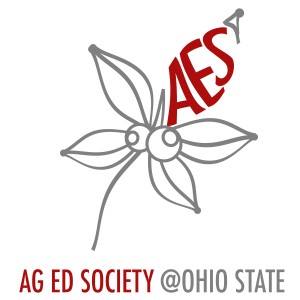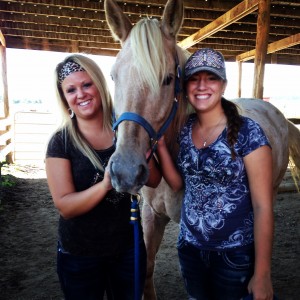At the Agricultural Education Society Fall Banquet on Tuesday, November 18, 2014, the new officer team for 2015 was introduced.
Each of these students answered a few questions so we can get to know them. Please see their answers below. For more information on the Agricultural Education Society at Ohio State, visit their facebook page.
Shelby Faulkner, AES President
Urbana, Ohio
Agriscience Education
3rd year
What are you excited about for your new role with AES? I am most excited about finding new opportunities for AES members to become involved and advocate for agriculture and agricultural education.
Why did you decide to join AES? I originally joined AES because, as a freshman, I was looking for an organization that was welcoming and supported my major and interests.
Why did you choose your major?I chose to major in Agriscience Education because the classes and experiences that I was able to have as a high school agricultural student truly made me who I am today. I want to be able to help other students find their passions through agriculture.
Lindsey Bement, AES Vice President
Wakeman, OH
AgriScience Education
3rd year
What are you excited about for your new role with AES? I am looking forward to strengthening the membership of AES and having the opportunity to get involved on a higher level. I am excited for the new year with an awesome officer team!
Why did you decide to join AES? I decided to join originally my freshman year because I am an AgriScience Education major and wanted to get involved.
Why did you chose your major? I was involved in my high school agriculture class and I loved every minute of it. I enjoyed learning about things that are useful in everyday life. I also think that it’s important that students are educated on how to take care of their environment, animals and that they know where their food comes from.
Emily Burns, AES Secretary
Baltimore, Ohio
Agriscience Education
2nd year
What are you excited about for your new role with AES? I am really looking forward to getting to know everyone in the club better. This is my first year so I also can’t wait to see all the great activities that we do!
Why did you decide to join AES? I originally joined Ag Ed Society because it was my major and I wanted to get to know other future educators as well. I thought it would be a good way to make a lot of connections!
Why did you chose your major? I originally majored in animal science pre-vet, but I decided it just wasn’t for me. I always wanted to be a teacher and I love agriculture so I put the two together and it was the best decision I have ever made! I am so excited to see where it takes me!
Carley Snider, AES Treasurer
Felicity, Ohio
Agriscience Education
2nd year
What are you excited about for your new role with AES? Improving fundraising activities/opportunities to increase our finances.
Why did you decide to join AES? I enjoy my major and wanted to be more engaged with others in my major/ department.
Why did you chose your major? I am interested in education within the agriculture industry.
Flo Smith, AES Reporter
Centerburg, Ohio
AgriScience Education
2nd Year
What are you most looking forward to about serving AES in your new officer position? I look forward to getting to help promote AES through news. I am excited to work with everyone on the team to make AES stand out.
Why did you decide to join AES? Since it is the club of my major, I imagined it would be able to help me in areas outside of what I learned in the classroom.
Why did you choose your major? I’ve always wanted to teach, and agriculture runs in my blood. Not to mention: so does the major. I’m very passionate about it, and I hope I can help others see all that agriculture is, someday.
Justin Feltz, AES Representative to CFAES Student Council
Versailles, Ohio
AgriScience Education
Sophomore
What are you excited about for your new role with AES? I am looking most forward to getting to know everyone in AES. Also I am looking forward to working with the CFAES Council.
Why did you decide to join AES? I decided to join AES because of my chosen major and because I could meet new people in my future career.
Why did you chose your major? I choose to major in AgriScience Education because I want to make the positive difference in the lives of students just as my high school Ag teacher did in mine, also because I had a great experience as an FFA Member, and want others to experience that as well.

L to R: Flo Smith, Emily Burns, Shelby Faulkner, Carley Snider, Lindsey Bement, Justin Feltz











